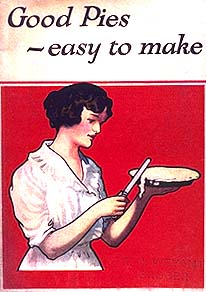
I have lots of books. In piles and stacks and scattered around the house, there is a mixture of what some people would consider trash, some better literary selections, solid non-fiction and science, and highbrow academic tomes with endnotes and bibliographies that exceed the length of the always-subtitled papers.
Here's what's I've been reading lately:
On This Hilltop, by Sue Hubbell
Friends and relatives think that it is great fun that we have a farm in the Ozarks. They conjure up pictures of husking bees, barefoot boys with cane fishing poles, and healthy outdoor work that tones the muscles and earns the right to enormous dinners composed entirely of apple pie (p. 3).
I picked up a copy of Hubbell's later essays about bee-keeping and living in the Ozarks -
A Country Year - on a whim on
paperbackswap.com, and now I'm hooked and working my way through all of her books. This one is a collection of essays that Hubbell wrote for a St. Louis newspaper in the mid 70's. Although some of it is definitely dated (but still fascinating, as when she describes the impact that local factories had on women's roles), most of the essays are timeless. These pieces aren't as deep or as detailed as those in
A Country Year, but sometimes a light-hearted description of caffeine highs and truck gardening is just what you want to read.
___________
Digging to America, by Anne Tyler
No quote here, because I've already returned this to library. I should have written down some quotes, though, because I remember thinking that there were a lot of good ones. This was my book club's choice for this month, and another one that I thoroughly and unexpectedly enjoyed. It sounds damning with faint praise, but this was just a thoroughly
nice book. The characters were interesting, complicated, and so real I had a hard time believing that they were fictional. The issues - adoption, immigration, exile, social class, parenting, generational conflict - were handled deftly and intelligently. I liked most of the characters, and I liked the book, and I loved the ending. I think I'll buy this one for my mom.
___________
Learning to Bow: Inside the Heart of Japan, by Bruce Feiler
Sakamoto-sensei believed that clothes were a good indicator of character. He regularly monitored the shoe racks in front of the school to see which students were stepping on the heels of their sneakers instead of slipping them on all the way. This behavior, he said, was an early sign of deliquency (p. 77).
This is the fascinating account of a middle school teacher who went to Japan to teach "English literature and American culture". It's next month's selection for my book club, and rather eye-opening in terms of cultural differences in gender roles, education and how schools work and what they teach.
___________
Secret Confessions of the Applewood PTA, by Ellen Meister
Maddie looked up and spotted a heavily made-up woman with an enormous mane of long, strawberry-red hair, bounding her way toward them, breasts bouncing chaotically from side to side. She wore a stylized sweat suit like Suzanne Podobinski, but instead of the intentionally sedate accessories the PTA president wore to suggest superior breeding, this woman was loudly accented with diamond jewelry, an oversized handbag, and some kind of hybrid footwear, part shoe and part sneaker, that Maddie thought looked like an experiment gone terribly wrong (p. 7-8).
I can't remember which blogger recommended this, but so far it is a satisfying look at suburban housewives. The characters are more likeable and probably more realistic than those in Tom Perrotta's
Little Children, though they are also less memorable.
Applewood PTA reminds me a lot of Jennifer Weiner's books about modern mothers (
Little Earthquakes and
Goodnight Nobody). But between these books and
What Do You Do All Day? (and all of the non-fiction, like Judith Warner's
Perfect Madness), I've had enough of east coast unhappy housewives. Let's have a little insight into how parents live in Texas, or Oregon, or Wisconsin next, ok?
___________
In Pursuit of Gender: Worldwide Archaeological Approaches, edited by Sarah Milledge Nelson and Myriam Rosen-Ayalon
I propose that the workload level for mothers that necessitated these changes in child labor and infant-feeding practices was present in Middle Woodland societies of the Midwest rather than the Late Woodland, as proposed by Buikstra et al. (1986:540). The evidence consists of the thinning of vessel walls that occurs in the fifth centry A.D., the population increase that begins in the Middle Woodland, the visible use of starchy supplemental food, the energy requirements necessary to establish and maintain the social network of Hopewell societies, and evidence of greater stress in the skeletons of at least some Middle Woodland skeletal populations (p. 233).
OK, so not every academic paper has a subtitle. Eleven of the nineteen papers in this book on prehistoric gender do have bipartate titles, but "Mothers' Workloads and Children's Labor during the Woodland Period", by Cheryl Claassen, quoted above, does not. Although I found several of the papers very interesting, a few years away from academic jargon really makes me appreciate writers like Robert Sapolsky.
___________
The Essential Rumi, translated by Colman Barks
I have lived on the lip
of insanity, wanting to know reasons,
knocking on a door. It opens.
I've been knocking from the inside!...
I saw this on the swap rack at my library this morning. Sometimes I love Saline. It's small enough to have a swap rack that works on an honor system, but large enough to have gems like this left in the rack along with the Harlequin romances.
___________
Feminism is for Everybody: Passionate Politics, by bell hooks
...I want to have in my hand a little book so that I can say, read this book, and it will tell you what feminism is, what the movement is about. I want to be holding in my hand a concise, fairly easy to read and understand book; not a long book, not a book thick with hard to understand jargon and academic language, but a straightforward, clear book - easy to read with being simplistic (p. viii).
And I think that hooks has done just what she says she intended above, though I'm only a few chapters into it. I've been working on a blog post on the different types of feminism - from anarcho-feminism to post-structuralist feminism, and this is a refreshing change.
___________
 From the most recent book I'm returning to the library but wish I could keep in my personal library: Far-Flung Hubbell: Essays from the American Road, by Sue Hubbell:
From the most recent book I'm returning to the library but wish I could keep in my personal library: Far-Flung Hubbell: Essays from the American Road, by Sue Hubbell:
